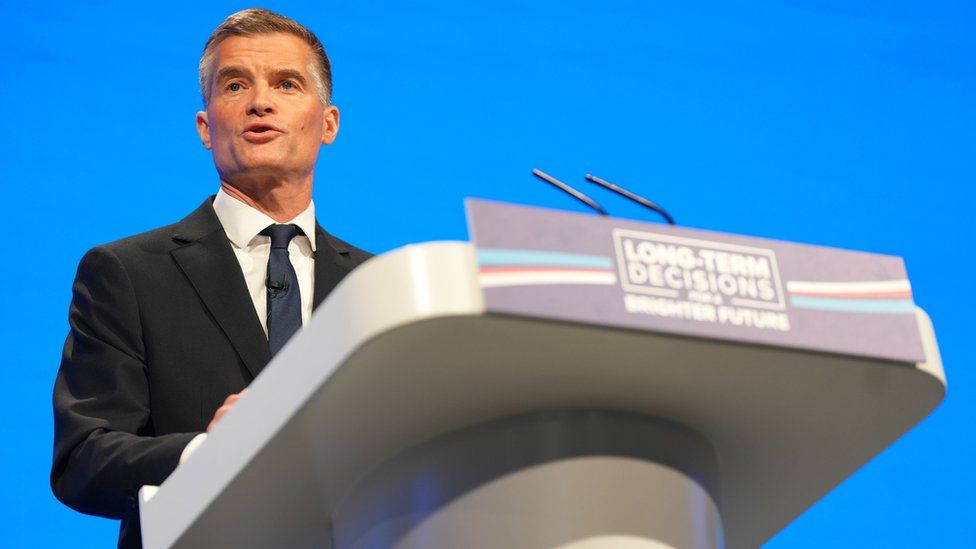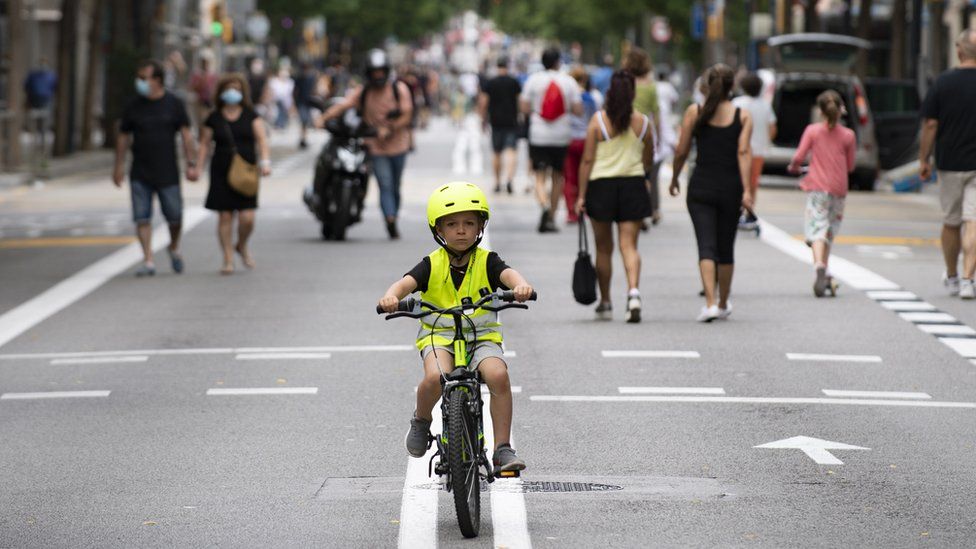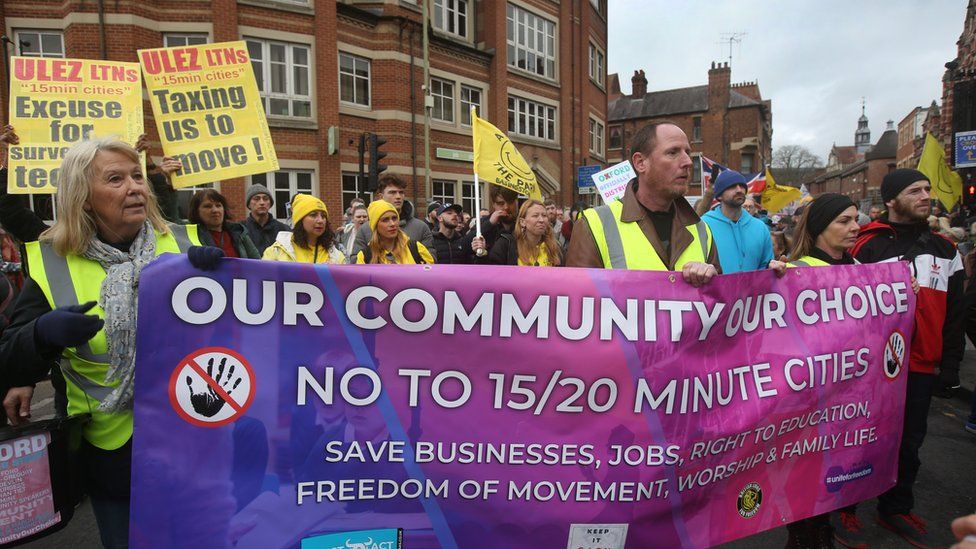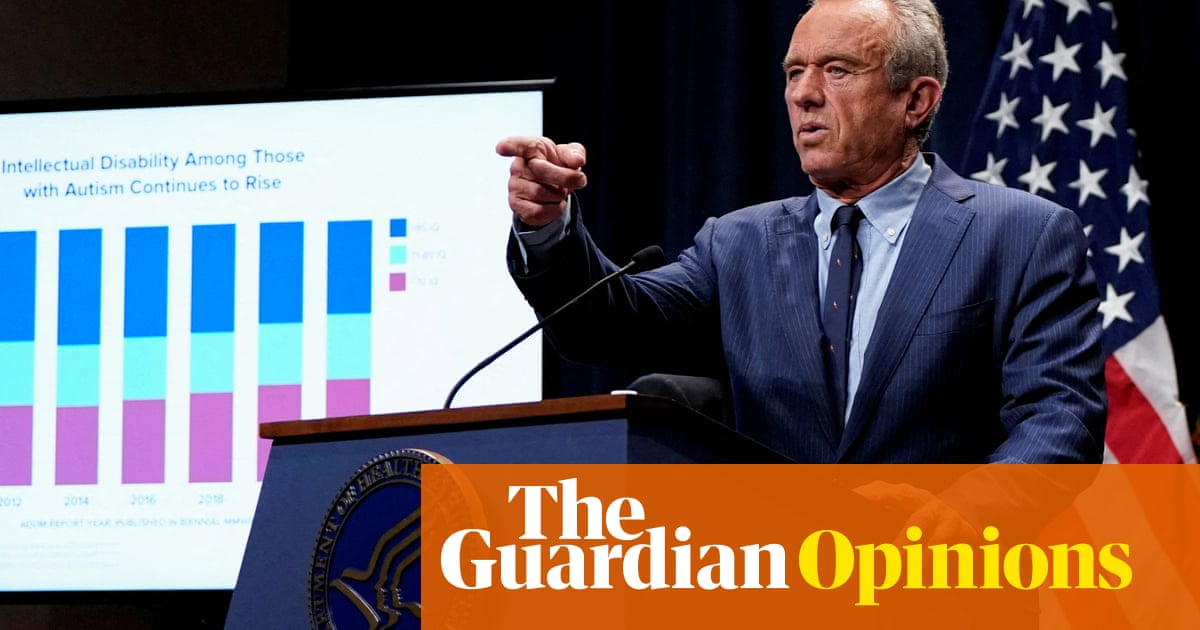15 minute cities: How they got caught in conspiracy theories
 PA Media
PA MediaConspiracy theories linking “15-minute cities” to sinister ploys to control people may once have been the preserve of fringe groups on social media, but have they now entered the mainstream of British politics?
Speaking at the Conservative Party conference on Monday, Transport Secretary Mark Harper said he was “calling time on the misuse of so-called ’15-minute cities'”.
Originally an urban planning concept, the “15-minute city” idea is aimed at providing people in cities with basic services within a quarter of an hour’s walk or bike ride of where they live.
“There’s nothing wrong with making sure people can walk or cycle to the shops or school,” said Mr Harper. “That’s traditional town planning.”
“What is sinister and what we shouldn’t tolerate is the idea that local councils can decide how often you go to the shops and that they ration who uses the roads and when, and they police it all with CCTV.”
But this is not an accurate characterisation of “15-minute cities”.
They do not give councils special powers to restrict people’s freedom of movement. And, while they are meant to reduce car traffic, they do not stop people from using other forms of transport.
Mr Harper did not respond to the BBC’s requests to clarify his comments, which appear to echo conspiracy theories about sinister plots linked to the concept of “15-minute cities”.
His speech follows government plans to “back drivers” by preventing councils from enforcing schemes that “aggressively restrict” where people drive.
The creator of “15-minute cities”, urban planner Carlos Moreno, issued a statement later on Monday calling on the government to reconsider its stance.
“Associating the ’15-minute city’ again with so-called ‘liberty-restricting’ measures is tantamount to aligning with the most radical and anti-democratic elements,” he wrote.
What are 15-minute cities?
The idea behind “15-minute cities” is everyone lives within a 15 minute walk or bike ride from all basic services we need – be it schools, clinics, or parks.
The ultimate goal is to reduce traffic, but also emissions that are driving global warming.
But critics argue that cars remain central to many people’s livelihoods and it is still virtually impossible for many to access alternative forms of transport.
Several councils have incorporated “15-minute cities” into their policy plans, including Canterbury, Ipswich, and Bristol.

Online conspiracy theories have blossomed around the topic – many claim the schemes are designed to control the population and trap them in their homes.
However, no council is planning to stop people from travelling beyond the 15-minute radius. Instead, the aim is to provide more essential services within a short distance of people’s homes.
Telegram channels devoted to spreading conspiracy theories around Covid-19 or the war in Ukraine have frequently spread false claims around the concept, linking it to all-encompassing conspiracy theories like the “Great Reset”.
Even before last week’s government announcement, it was still possible to find hundreds of posts on other platforms pushing false claims around “15-minute cities”.
Oxford in the eye of the storm
It was in Oxford where this idea truly sparked a misinformation storm.
Last November, Oxfordshire County Council approved the creation of traffic filters, enforced through cameras in six key locations.
Private cars would not be allowed through without a permit (which they could use up to 100 days per year), but all other vehicles would be exempt – to incentivise the use of public transport and cycling.
The BBC understands that Oxford was one of the places Mr Harper had in mind when he spoke of councils that “ration who uses the roads and when”.
But, while some people may find this “controlling”, it is definitely not the same as a “15-minute city”.
The traffic filters scheme attracted significant opposition from people worried about the impact the measures might have on their mobility and livelihoods.

But online, a separate conversation appeared to be taking place – one that tapped into genuine grievances against the trial, blending them with rumours pushed by far-right blogs and fringe media outlets around the world.
On social media, some users suggested this was part of a sinister plot to confine people to their local areas for the sake of the environment.
Others wrongly linked the traffic filters scheme to a separate council proposal to introduce 15-minute neighbourhoods in Oxford.
Oxfordshire County Council publicly dismissed claims suggesting a link between the two, as well as the claim that traffic filters will be used to confine people to their local area.
But soon the social media frenzy also began having a real impact offline: councillors received death threats. Others were faced with anxious questions from residents.
“People have come up to me and said: is it true that we’re not going to be allowed out of our houses, that it’s going to be just like the coronavirus lockdown?”, Emily Kerr, from Oxford City Council, told the BBC at the time.
Leafletting campaigns accusing councils of treating people like guinea pigs were organised.
Soon enough, council meetings in other parts of the country were being interrupted by protesters.
15-minute cities in the spotlight
As false claims spread online, the subject was briefly raised in Parliament.
In February, Nick Fletcher, Conservative MP for Don Valley, asked the government to hold a debate on what he described as “the international socialist concept of so-called 15-minute cities and 20-minute neighbourhoods”, which he said “will take away personal freedoms”.
In response, the leader of the House of Commons, Penny Mordaunt, said that “where such policies are brought forward, local communities ought to be properly consulted”.
Speaking to Radio 4’s PM programme, the minister for Nuclear and Networks, Andrew Bowie, appeared to agree with Mr Harper:
“This is coming up in discussions on door-steps up and down the country, it’s coming up in discussions forums, online”
“People are concerned and we need to address those concerns.”




